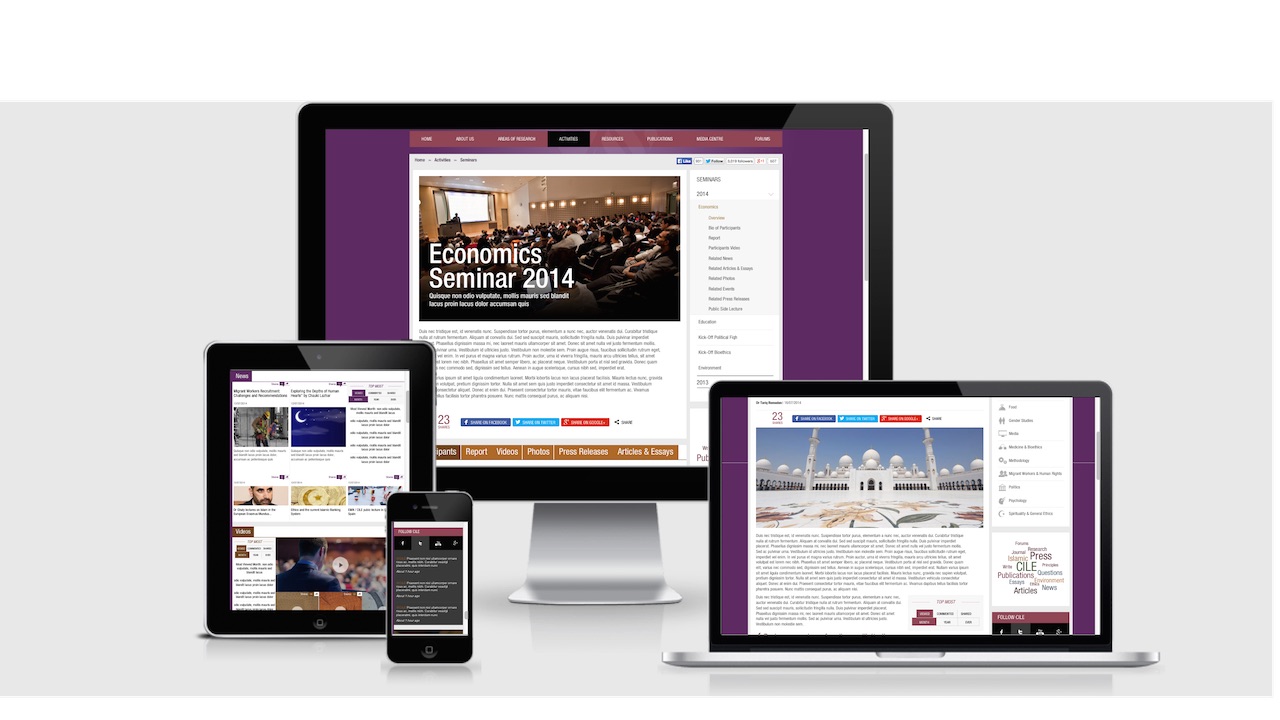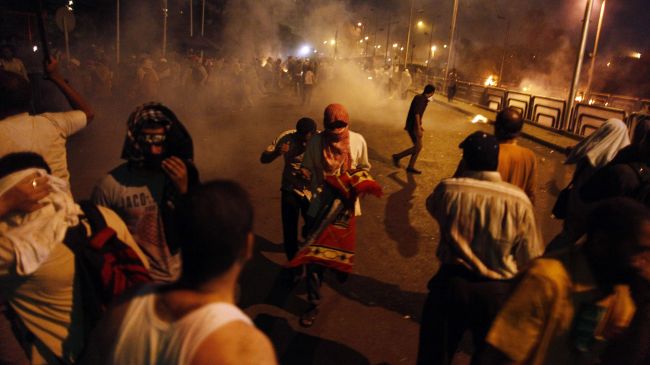A European campaign an initiative launched by SPIOR and the Rotterdam Municipality, in co-operation with Professor Tariq RamadanForced marriages may seem to belong to the past, but actually still are a reality in European societies. Young people, both girls and boys, are being forced to marry someone their parents or family have chosen for them and are not being given the opportunity to say ‘no’. It happens amongst groups of different ethnic, cultural and religious backgrounds, also amongst Muslims. As far as Muslims are concerned, it is often thought – by Muslims and non-Muslims alike – that forced marriages are a part of Islam. However, Islam actually forbids forced marriages. A marriage is only valid according to Islam when both man and woman enter it of their own, free will.
For SPIOR, the Muslim umbrella organisation in Rotterdam, the Netherlands, the fact that Muslim girls were running away from home out of fear of being forced to marry, was the reason to start a project against forced marriages in 2004. The goal was the prevention of forced marriages by raising awareness about the issue, changing attitudes and promoting better communication between Muslim parents and children. To this end, meetings were organised with hundreds of young women, men and parents, also involving imams and scholars. Educating people about the Islamic view on forced marriages and choice of a partner in general was an important part of the project. The fact that Islam actually forbids forced marriages turned out to be an eye-opening message for many of the people involved.
The results of the project were published in a booklet with the same title: ‘Joining hands against forced marriages’ (2007). The booklet further contains information about the cultural background of forced marriages, about the Islamic view on marriage and forced marriages and about the relationship between marriage and the concept of ‘honour’. Also, the booklet provides a step by step plan for detection of force, taking actions and some advice for setting up preventative projects.
This issue is not unique for Rotterdam, or the Netherlands. That is why now SPIOR and the Rotterdam Municipality, in cooperation with Professor Tariq Ramadan (visiting professor on ‘Citizenship and Identity’ at the Erasmus University in Rotterdam and president of the think tank European Muslim Network), have started a European campaign against forced marriages. To this end, the aforementioned booklet will be translated into English, French, German, Italian and Spanish and distributed in the UK, Belgium, France, Germany, Italy and Spain. Of course, SPIOR can not do this alone. For this purpose, we will team up with Muslim organisations and (local) authorities in these countries, who will put the issue of forced marriages on the agenda in their own communities and in their own way. SPIOR’s experiences, as described in the booklet, will hopefully serve as means of inspiration for others.
The campaign will start with launch meetings in Rotterdam and several capitals:
14 May 2008 – Rotterdam,
16 May 2008 – Brussels,
21 May 2008 – Berlin,
22 May 2008 – Madrid,
23 May 2008 – Paris,
26 May 2008 – Rome,
3 june – London.
For more information, please contact Marianne Vorthoren at SPIOR:
+31 (0)10 – 466 69 89
or [email protected]










Salam Aleikum! I congratulate Professor Tariq Ramadan for this initiative. Unfortunatelty forced marriage is still a problem among European muslims. Young people find difficulty to confront the tradition, parents and friends. To marry by force becomes a question of keeping the honor. What is very contradictory, because honor is construct when you respect people and take decision based on more firm believes (Like the Coran)than traditions imposed by men. Not only girl, but also boys, even when adults (men), are having to deal with forced marriages in their lifes. It is very true that there is a lack of communication between parents, sons, daughters and people involved. The person in question rarely tries (when he/she does) to talk to their parents about the situation, and thus she/he doesnt exposes her/his feeling, wishes. What means that people who live close to them, do not really know them, or do not happen to open their eyes to see them. Also, the young people to be married, on the other hand, do not make themself known to their mothers and fathers. And they should. But they remain silent and are devoured by tradition. Afterwards spend lifetime struggling with the marriage. Or just wait for an opportunity to get into divorce. This initiative will hopefully give courage to young people to talk to their parents and open their minds and hearts. It will also present a new legitimate perspective to parents. A PURE AUTHENTIC MUSLIM PERSPECTIVE, which is beyound tradition. The main moral values of the Coran should be the principles to guide decisions and how marriages should be taken among muslims. Tradition lacks understanding, lacks humanity, ignores the freedom we have in God and puts God in second place. Bravo Professor Tariq Ramadan! May God continue to use you to make his willing known to the world! Salam! FSaddi
I am so delighted that this problem faced by young muslim women and men is finally being addressed.
It’s appaling how Imams and men at most Mosques even here in Alberta never talk about problems such as forced marriage, domestic violence etc..
For example, here in Edmonton at the U of A mosque (university of Alberta in Edmonton, Alberta, Canada) girls are treated like second class citizens, and this by the Imam himself who is a university student. This has pushed some girls away from going to the prayers.
Canadian Imams are always concerned about domestic violence, they have condemend it and have organised education and counselling forums on this important issue.
Dear Mr. Tariq Ramadan,
I am happy to say that my days as an unrepentant islamophobe are at their end, thanks to your writings and initiatives.
Nicolas Kohler
Mr. Ramadan, the more I read of you, the more I appreciate your importance for day to day life of muslims in Europe. Muslims need to create their own initiatives concerning muslimyouth. I see in my work how muslimgirls get encouraged to distance themselves from their traditional background. A lot of girls with problematic family-background, who are being told at home that everything is forbidden for them, but don’t get any positive guidance, feel like they want to break away from that situation. And can you blame them? The problem is that they equate freedom and well-being to everything that is forbidden in their upbringing: going out, having boyfriends, etc. When they take their grievances out to non-muslims (teachers, social workers, policymakers) they are heard and confirmed in their feeling that they should be free this way. Unless girls get something positive out of their own religion and tradition, they will continue (influenced by the non-muslim surrounding – peers and adults) to strive for more freedom – and not in a ‘halal’-way….